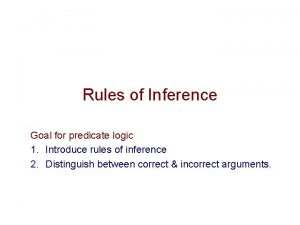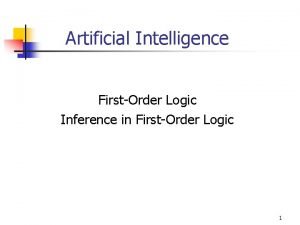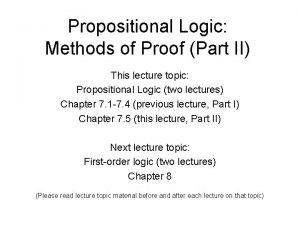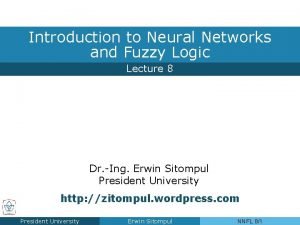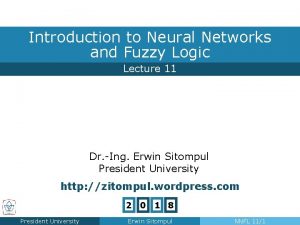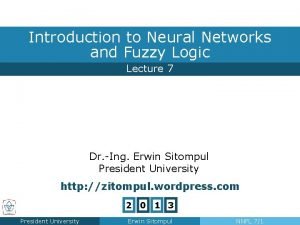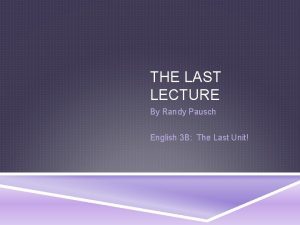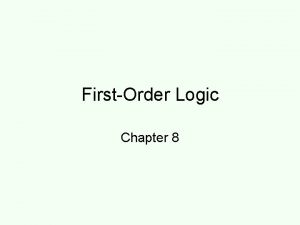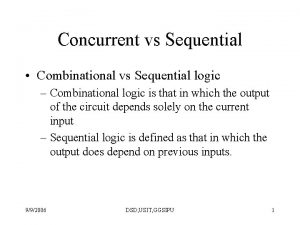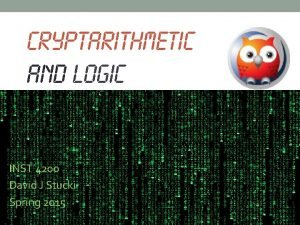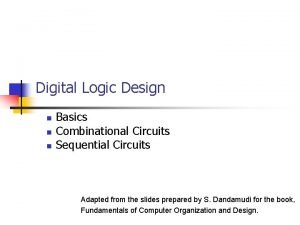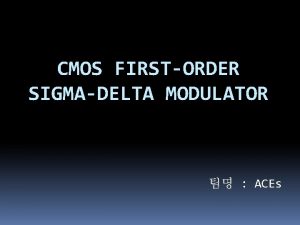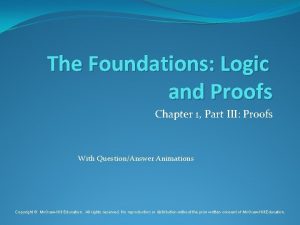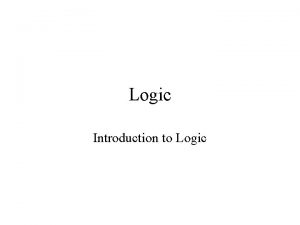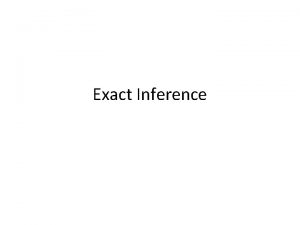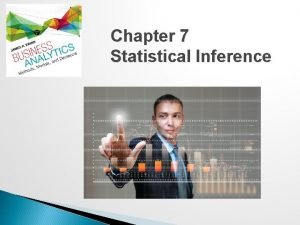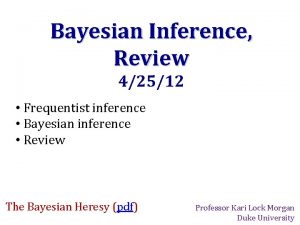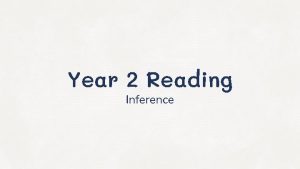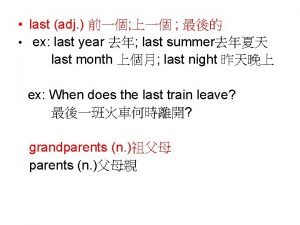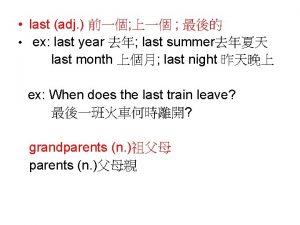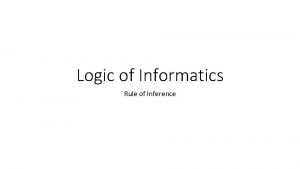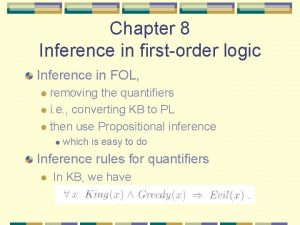Logic of Informatics Rules of Inference Last Lecture

















- Slides: 17

Logic of Informatics Rules of Inference

Last Lecture • • • Converse Inverse Contrapositive Tautology Contradiction

What is an argument? An argument is a sequence of statements or premises that end in a conclusion. Ex: If I jump I will fall I jump Therefore, I will fall This argument has the form:

Another Example Ex: p q Premise: If I eat too much, my stomach will be hurt Premise: My stomach doesn’t hurt Conclusion: Therefore, I don’t eat too much This argument has the form:

The purpose of rules of inference We use rules of inference to construct valid arguments. A valid argument is one in which it is not possible for the conclusion to be false if the premises are true. The argument is valid iff the truth of all premises implies the conclusion is true

How to determine the validity of argument? The argument form with premises and conclusion is valid when is a tautology

The Rules of Inference Modus Ponens If I am late, my teacher is angry to me I am late Therefore, my teacher is angry to me

The Rules of Inference Modus Tollens If grass is blue, then trees are blue Trees are not blue Therefore, grass is not blue

If today is raining, then we are late If we are late, then our teacher will be angry Therefore, if today is raining then our teacher will be angry

OR My wallet is in my pocket or left behind at home No wallet in my pocket Therefore, my wallet left behind at home

The Rules of Inference Conjunction He takes Discrete Mathematics Lecture He repeats Algorithms Lecture Therefore, he takes Discrete Mathematics and repeats Algorithms

The Rules of Inference Addition OR

The Rules of Inference Simplification OR I am clever in mathematic and computer science Therefore, I am clever in mathematic

The Rules of Inference Dilemma Either we increase the price or we decrease the quality. If we increase the price, sales will slump. If we decrease the quality, sales will slump. Therefore, sales will slump.

Exercise 1 • Determine whether the following argument is valid / Invalid a). P (Q R) R P Q b). P (Q R) Q (P R) P R

Exercise 2 One day, you want to go to college and realized that you do not wear glasses. Having to remember, there are some facts that you make sure the truth: 1. If the glasses are on the kitchen table, then I would have seen it as breakfast. 2. I read the newspaper in the living room or I read it in the kitchen. 3. If I read the newspaper in the living room, then surely put my glasses on the coffee table. 4. I do not see my glasses at breakfast time. 5. If I read a book in bed, then put my glasses on the bedside table. 6. If I read the newspaper in the kitchen, then my glasses are on the kitchen table. Based on these facts, prove / show that the glasses left on the coffee table!

Exercise 3 • Prove the validity of the following arguments using the rules of inference! p q (p q) r r
 Predicate logic rules of inference
Predicate logic rules of inference Ahead ea wall
Ahead ea wall What is inference in logic
What is inference in logic 01:640:244 lecture notes - lecture 15: plat, idah, farad
01:640:244 lecture notes - lecture 15: plat, idah, farad Membership function fuzzy logic
Membership function fuzzy logic Fuzzy logic lecture
Fuzzy logic lecture Fuzzy logic lecture
Fuzzy logic lecture Randy pausch the last lecture summary
Randy pausch the last lecture summary First order logic vs propositional logic
First order logic vs propositional logic First order logic vs propositional logic
First order logic vs propositional logic Third order logic
Third order logic Combinational vs sequential logic
Combinational vs sequential logic Cryptarithmetic problem logic+logic=prolog
Cryptarithmetic problem logic+logic=prolog Project management plan example
Project management plan example Combinational logic sequential logic
Combinational logic sequential logic Combinational logic sequential logic 차이
Combinational logic sequential logic 차이 If x = 0 and y = 1, which output line is enabled?
If x = 0 and y = 1, which output line is enabled? Rules of inference
Rules of inference
